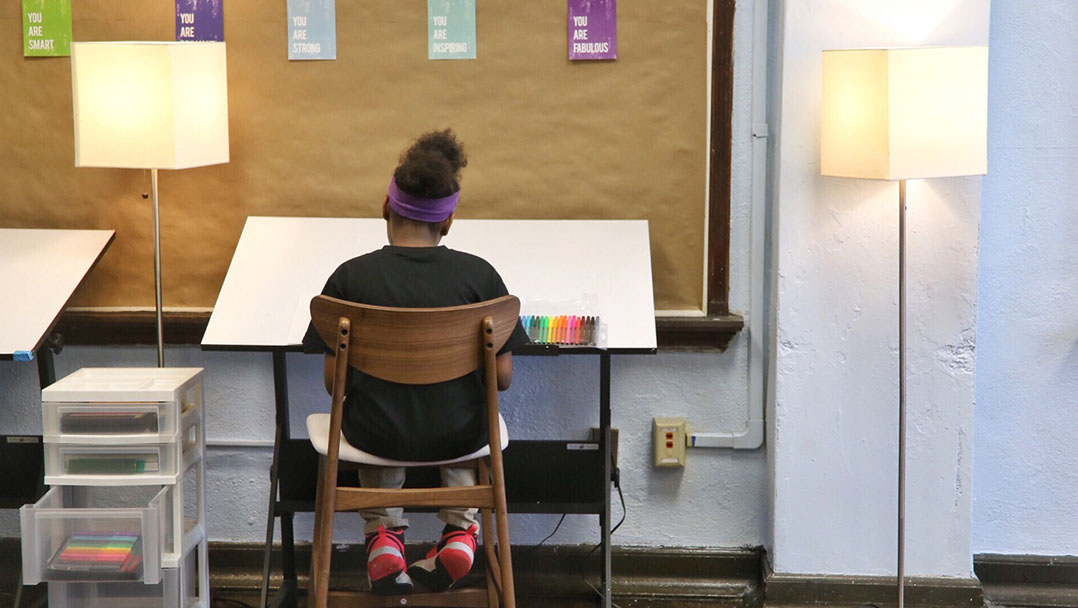By the time students in the U.S. reach the age of 17, 60% of them have been exposed to violence.1 Researchers found that 20% of American students have been personally affected by trauma.1 The same...

By the time students in the U.S. reach the age of 17, 60% of them have been exposed to violence.1 Researchers found that 20% of American students have been personally affected by trauma.1 The same Youth Risk and Behavior Study from the Centers for Disease Control and Prevention noted that more than 17% of those students have considered suicide.2
Dr. Deborah Purge, a psychologist with the Dallas Independent School District’s Youth and Family Centers, shared her expertise on these topics during a free seminar sponsored by Cigna. Her presentation, “Calming Worried Minds after a School Trauma [PDF],” addressed the long-lasting impact that trauma has on adolescents.
“Children who have experienced traumatic events need to feel safe and loved,” Purge said. “When parents do not understand the impact of trauma, they might misinterpret it or think something else is responsible for the behaviors in the children they’re seeing.”
In detailing some of the risk factors and warning signs of trauma, Purge noted that the effects could be expressed quite differently in children depending on age. It’s important for parents to look beyond the surface for signs that their child is having problems. That trauma might not even necessarily be ongoing.
“Trauma is an emotional response to an intense event,” Purge said. “The harm can be physical or emotional, real or perceived. It’s something that a child perceives to be threatening to them.”
Addressing trauma in the community
Cigna’s efforts to help those who have experienced trauma extend to its Community Ambassador Fellowship Program, through which a Cigna employee took a sabbatical to work on a health education program at a public school in one of the most disadvantaged Southwest Philadelphia neighborhoods.
Cigna employee Peggy Banaszek teamed with William T. Tilden Middle School staffers and the nonprofit Turning Points for Children to create a “calming room” for students at the school. Officials estimate as many as 60,000 Philadelphia students come to school having experienced trauma that has the potential to impact their lives, their schooling and their future.
Banaszek worked closely with Community School Coordinator Regina Young, Principal Brian Johnson, Cigna behavioral health and mindfulness experts, and local therapist Dr. Angelle Richardson, to bring the “calming room” to life.
The space is a safe, therapeutic room for students to self-regulate their mood, de-stress, and unwind. It is intended to help remove distracting barriers or obstacles that may come between students and their education. School mental health specialists, teachers, and counselors can refer students to the calming room, which can accommodate up to eight students at a time.
In the four corners of the room, students can partake in individual quiet activities, including reading, art, meditation, and self-guided yoga.
What parents should do when confronting trauma
Cigna hopes to use Banaszek’s program as a model that can be replicated in other urban areas affected by trauma and stress. In the meantime, trauma experts like Purge remain essential in educating the public on the facts of trauma.
According to the National Child Traumatic Stress Network, it’s important for parents to follow these steps when talking with their children about trauma.3
- Be honest with your child
- Listen carefully to the feelings your children are expressing
- Be prepared to discuss things over and over again
- Don’t be afraid to let them know when you are not sure or don’t know the answer
- Remember children’s understanding of the trauma or death will vary depending on the age of the child
- If your child has to attend a funeral or burial, prepare them as to what to expect as this can be a frightening experience for them
- Be prepared to deal with the unexpected feelings and behaviors after the trauma or funeral
If trauma is ignored or left untreated, Purge noted that it can cause long-lasting and negative impacts on brain development. Parents should never hesitate to consult resources and ask for help [PDF].
Purge’s presentation is one of many free seminars for parents offered by Cigna. Each session includes expert information about how to deal with common issues in children with behavioral disorders, as well as coping techniques and support for caregivers.
1Calming Worried Minds After a School Trauma, Cigna, September 2018, Calming Worried Minds After A School Trauma [PDF]
2 YRBSS Results, Centers for Disease Control and Prevention, June 2018, YRBSS Results
3 The National Child Traumatic Stress Network , NCTSN – The National Child Traumatic Stress Network
This is general health information and not medical advice or services. Always consult with your doctor for appropriate examinations, treatment, testing, and health care recommendations.